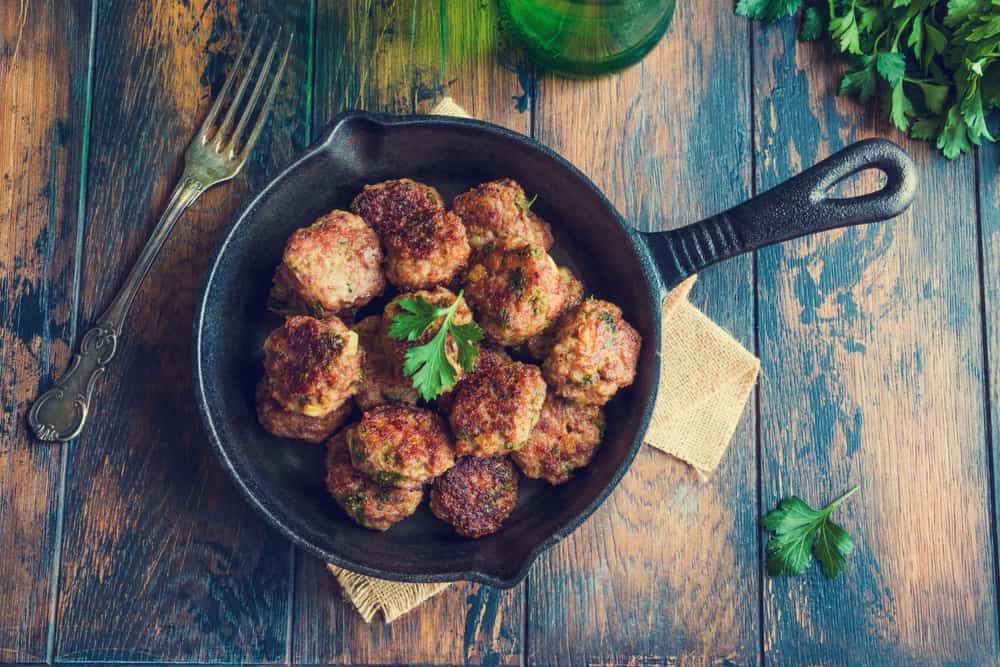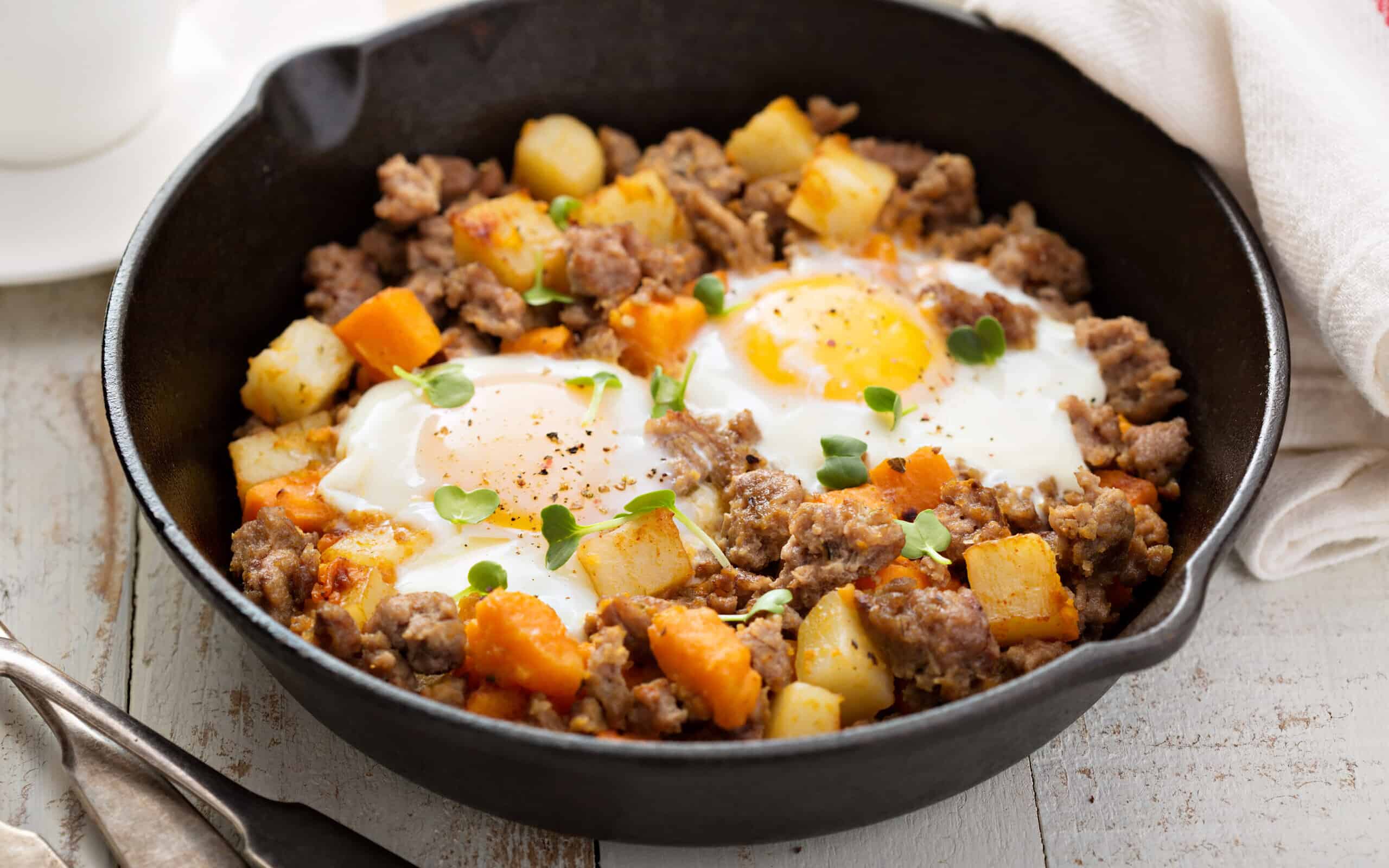Cast Iron vs. Ceramic: What's better for cooking? While they both have advantages, it depends on what you eat the most. It depends on what you like to cook the most because they also have disadvantages.
Ceramic and cast iron are a few thousand years old. They've both played a pivotal role in cultures, especially regarding how food is cooked. Cast iron is known for its durability, while ceramic is known for its aesthetic design. They also have unique attributes that make them stand out for cooking certain foods. But what is ultimately the better choice for cooking?
This guide uncovers everything you need to know about cast iron vs. ceramic. We look at how they are made differently, the better cooking material, and which is the superior choice.
What Is Cast Iron?

©Magrig/Shutterstock.com
With the proper care, cast iron cookware can last generations. This is because cast iron is made of iron pig from melting iron ore. There are also elements of carbon and limestone involved in making cast iron cookware.
One of the reasons that cast iron lasts so long is that a fat buildup builds up on the nonstick surface of the pot or pan. That layer protects the cast iron cookware from rusting or corroding. However, while cast iron cookware is perfect for durability, there are certain drawbacks that you should watch out for.
For example, cast iron skillets aren't usually good at conducting heat. This means that part of the pan will stay warm, but the heat unevenly spreads. While cast iron is excellent at retaining heat, it's not the most outstanding conductor of using that heat to warm the entire pan. Another drawback to consider is that cast irons aren't light. They are usually heavy, making them difficult to transfer throughout your kitchen. This is why you should always have oven mittens to help carry it if it's hot.
To get the best use from your cast iron cookware, here are the best methods for adequately using it:
- Preheat your cast iron skillet for about five minutes before cooking.
- Use oil to spread around the cast iron skillet.
- Use minimal soap to clean your skillet. Too much soap can take off the seasoning.
What Is Ceramic?
Ceramic is more than cookware. The aesthetic design for making bowls, plates, and other cookware makes ceramic somewhat of an ornament around the home. Ceramics is also excellent for special meals and occasions because of the unique designs that they are made of.
Another benefit of cooking with ceramic is its natural, non-stick base. This means it's unlikely to stick to the bottom of a ceramic pot or pan when you cook food. Like cast iron, ceramic can also withstand high temperatures when cooking, making it easy to put in an oven or cook something over the stove.
The drawback of ceramic, at least when compared to cast iron, is that it's not as durable. Ceramics can crack and break if you drop it. It's also not as efficient when it comes to cooking food. Various kinds of ceramic cookware have different tolerances. The higher quality ceramic cookware will typically be stronger for cooking, but ceramics are always known for their design, not durability.
To get the best use from your ceramic cookware, here are the best methods for adequately using it:
- Cook at a low to medium heat.
- Avoid using Olive oil.
- Use a non-abrasive sponge with warm, soapy water to clean it.
Cast Iron vs. Ceramic: What's Better for Cooking?
Different food works better for cast iron or ceramic. Choosing the right food for either cast iron or ceramic can bring out the most flavors for either food.
Here are the best foods to cook with cast iron:
- One-Pan Chicken, Sausage, and Brussels Sprouts
- Creamy Garlic Chicken Spanakopita Skillet
- Butter-Basted, Pan-Seared Thick-Cut Steaks
For example, here are the best foods to cook in ceramic:
- Vegetable Casserole
- Baked Risotto
- Pot Roast
Cast Iron vs. Ceramic: What's Better for the Kitchen?
Cast iron and ceramic are two unique ways of preparing food. However, ceramic is the way to go if you want the more budget-friendly option. It also has an aesthetic design that makes every dish look special. Cast iron tends to be more expensive because it's more durable. If kept clean, cast iron can last for years.
While there's no perfect choice between cast iron or ceramic, this guide shows you they differ. Before buying either, you should consider the food you eat with either. It can tell you of whether cast iron or ceramic cookware is best for you.
The image featured at the top of this post is ©Elena Veselova/Shutterstock.com.
